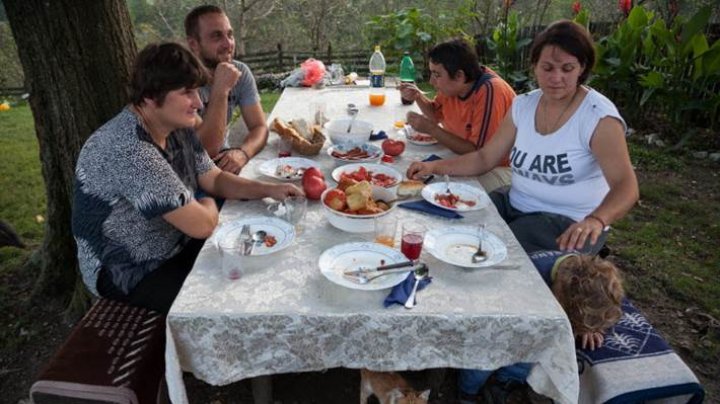Recipe for a new food system: waste less, go digital, care for the planet
 foto: FAO
foto: FAO
Delegates from 42 countries and the EU tackle new food and agriculture challenges at UN regional conference in Voronezh, Russia.
Ideas that might have sounded naïve or unrealistic just a few years ago are now firmly planted in the public conversation about food and agriculture.
How to make the best use of digital technologies? How to eliminate food waste and loss? How to ensure that agriculture works together with nature? What role can organic play? These and other topics head the agenda of a three-day UN conference that opened here yesterday.
The UN Food and Agriculture Organization (FAO) holds its Regional Conference for Europe every two years – each time hosted by a different member country. Now in its 31st session, the Conference is FAO’s highest governing body for the Europe and Central Asia region, defining priority areas of work in the region for the coming two years.
“Judging by the debate today, I would say the agenda of this year’s Regional Conference really hits the mark in terms of relevance,” said Vladimir Rakhmanin, FAO Assistant Director-General and Regional Representative for Europe and Central Asia. “In Voronezh this week, we are looking at cutting-edge issues, such as the intersection between gender, poverty and migration, rising rates of obesity coexisting with other forms of malnutrition, and much more.”
A Ministerial Roundtable this morning was dedicated to sustainable agriculture and food systems in a changing climate.
A discussion on “e-agriculture” looked at the application of information and communication technologies throughout food systems – from production through trade integration and markets. While promoting the adoption of digital technologies, FAO is also concerned with ensuring fair access, so that small-scale farms are not left behind.
Promoting quality – through organic agriculture and geographic indications in national food systems – was the focus of a special session that attracted significant attention. Participants discussed the opportunities presented by organic production in the region, and how countries could benefit from foods that are part of their cultural heritage.
“We are pleased by the turnout, by the energetic debate, and by the careful preparations by our hosts,” Rakhmanin said, referring to logistical and hospitality efforts on the part of Russia’s Ministry of Agriculture and the government of Voronezh Region. “This is the first time Russia has hosted an FAO Regional Conference, and I believe it will prove to be a memorable one.”
Attendance at regional conferences is by Ministers of Agriculture or other high-level representatives of the Member Countries in FAO’s Europe and Central Asia region.
Relevant nongovernmental and intergovernmental organizations may be invited to attend as Observers. At the opening of the Conference, delegates heard a consensus statement from civil society organizations across the region.
The 31st session of the FAO Regional Conference for Europe runs from 16 to 18 May.